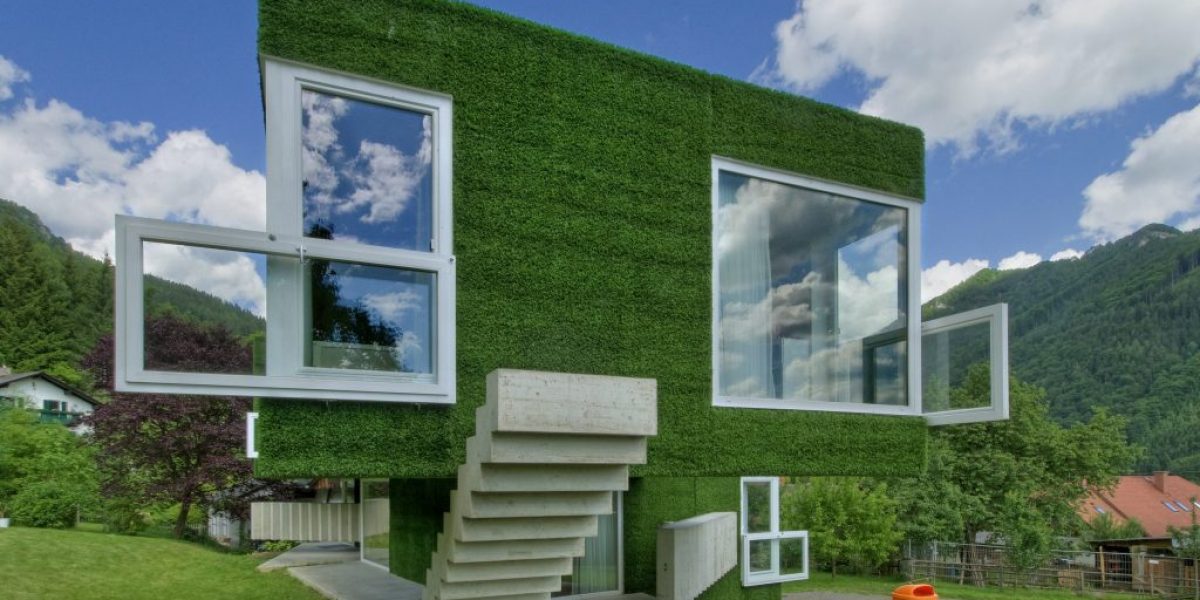5 Architectural Oddities That Somehow Got Approved
People are, even at the best of times, weird and predictable, so it makes sense that the products of their imaginations are potentially just as off the wall. These sorts of sudden bouts of creativity are usually limited to a weirdly poetic Facebook post or a blog started and quickly abandoned after one post. But when an architect puts their mind to it, we can be left with some truly bizarre, jaw-dropping monuments that will endure for years to come whether we like it or not.
1. Inntel Hotel
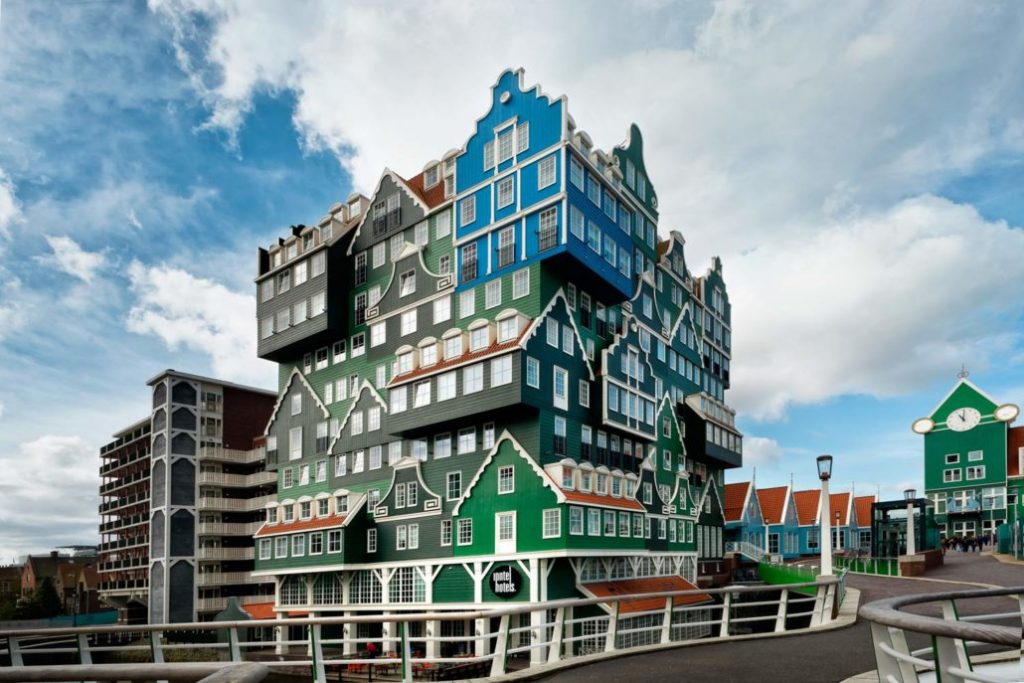
Based on traditional houses in the region, the simply-named Inntel is 100 percent quirk. Eleven stories tall with 160 rooms, this hotel opened in 2010 in Zaandam and is already providing a draw card for tourists. This crazy fusion has created a link between old and new, as if it’s a scrap book of traditions.
2. Lawn Home
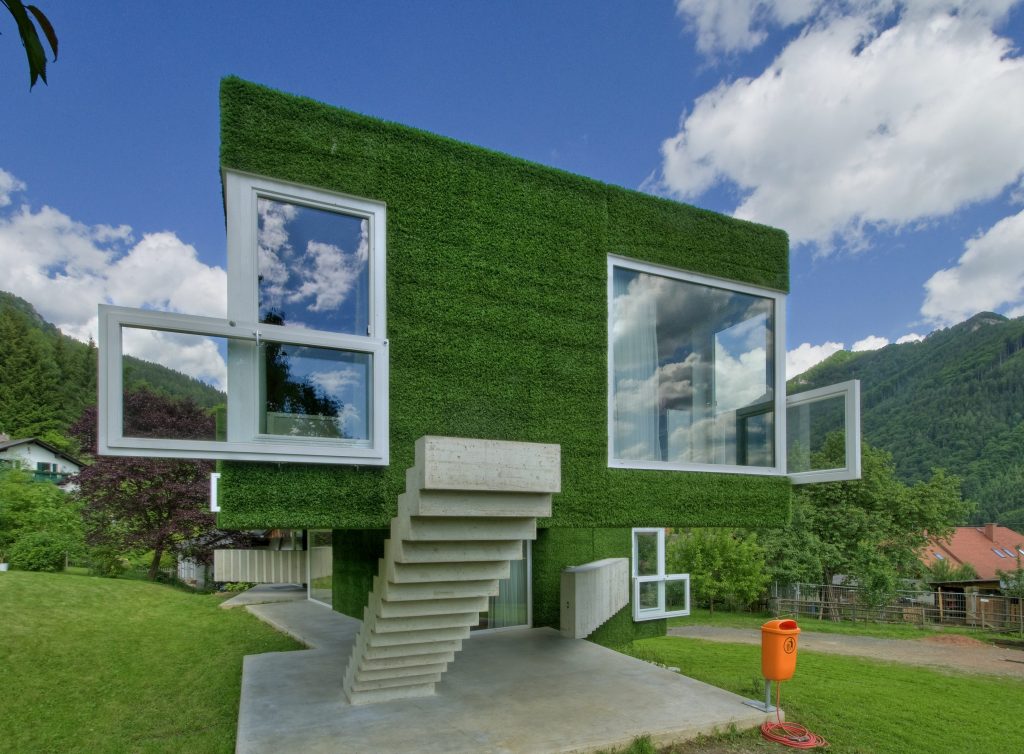
Astroturf home for a single family anyone? Designed by Reinhold Weichlbauer and Albert Josef Ortis of Weichlbauer Ortis Architects, this home explores the connections between nature and architecture. It looks more like a weird puzzle home, with stairs leading nowhere and strange cubic extrusions.
3. Kunsthaus Graz
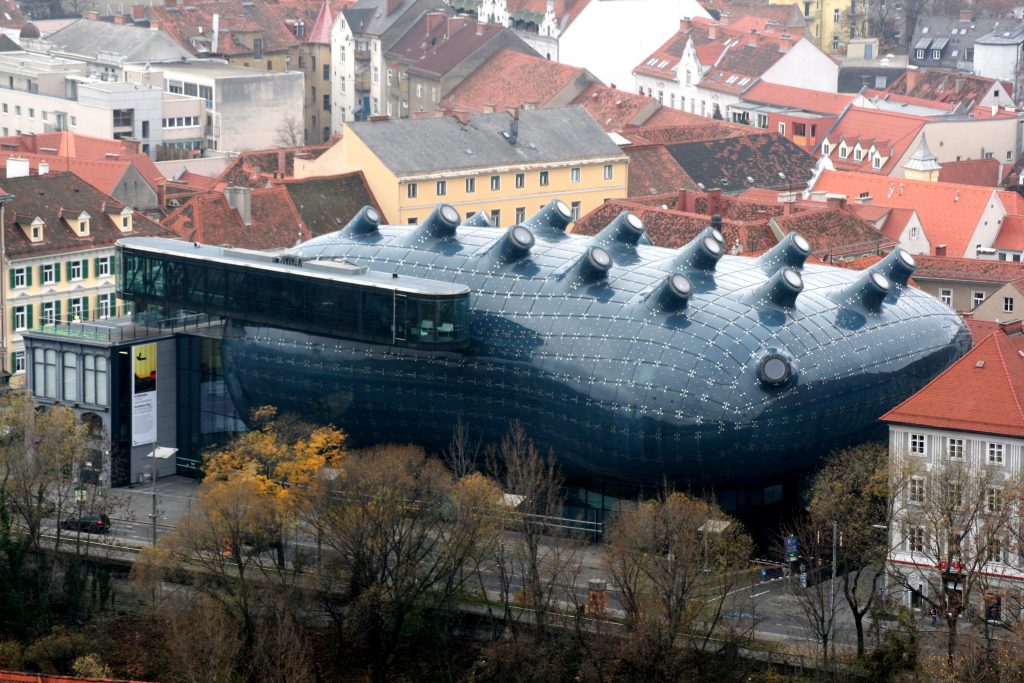
Art museums these days know how to go outrageous. This giant kidney/heart thing is the Graz Art Museum designed by Sir Peter Cook and Colin Fournier. Much like the following Happy Rizzi House, this “Friendly Alien” as it’s known by the locals, serves as a bridge between the old and the new areas of town. On its exterior are 1,288 semi-transparent acrylic glass panels that generate energy with built-in photovoltaic panels.
4. Happy Rizzi House
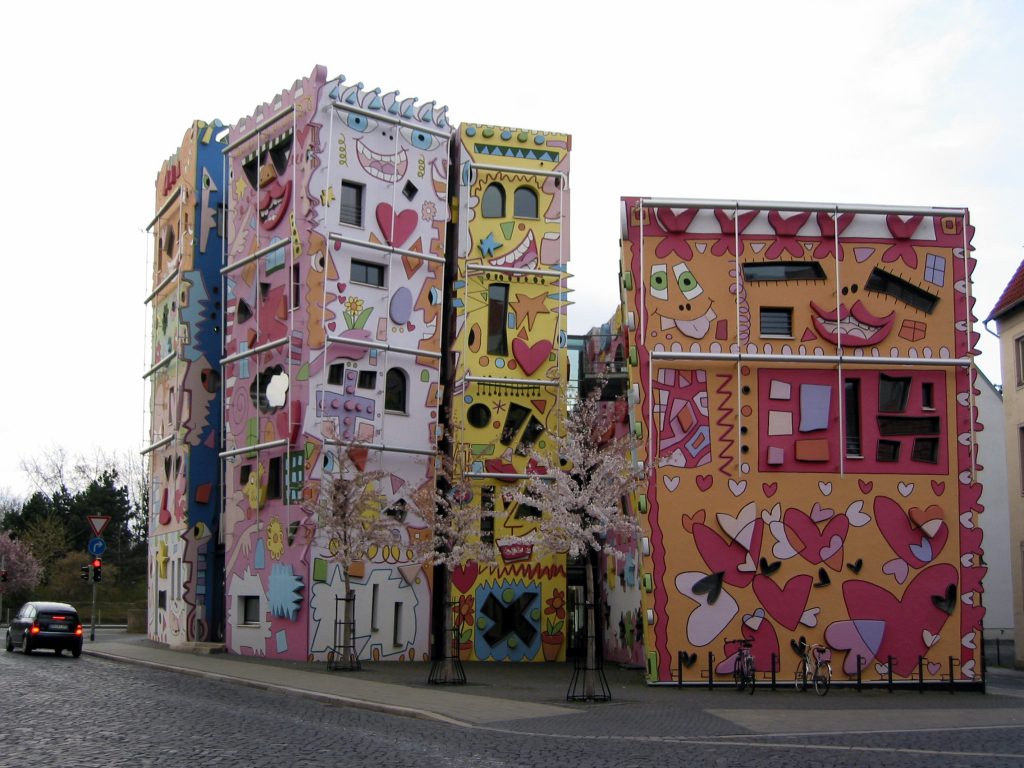
Built in the historic German city of Brunswick, this insane abomination has found its way into the hearts of the locals. This collaborative project between artist James Rizzi and gallery owner Olaf Jäschke took two years to build. The building is now seen as a border point between the historic village and the bustling 21st Century business district.
5. Tianzi Garden Hotel
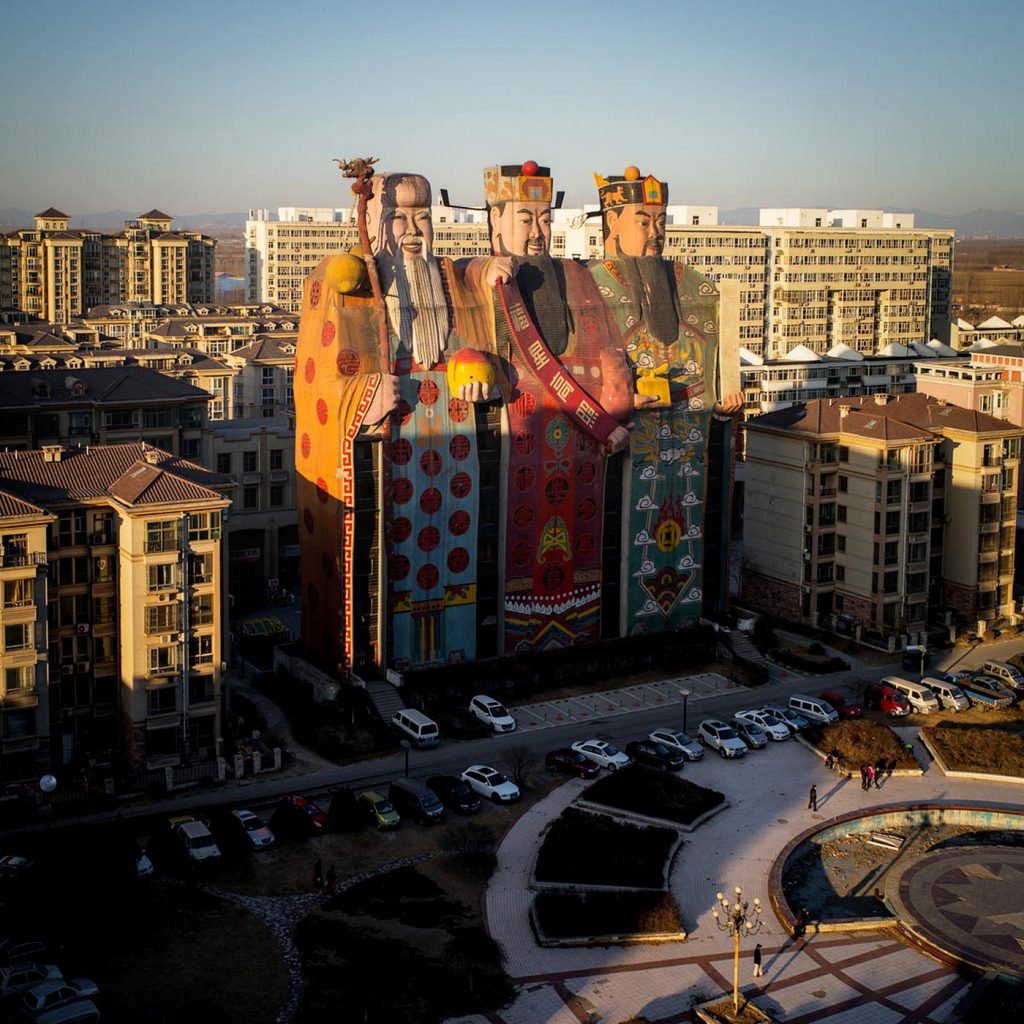
China has a strained relationship with “weird” architecture, though their penchant for the wild and wacky, which is putting it mildly, might be on the wain with the Chinese Central government having released an urban blueprint decreeing an end to all mainland construction that is “oversized”, “xenocentric” or “weird”. Fortunately, the Tianzi Garden Hotel slipped in anyway. “Tianzi” roughly translates to “Son of Heaven,” and the three characters portrayed by the hotel are three gods – Fu (福), Lu (禄) and Shou (寿).



